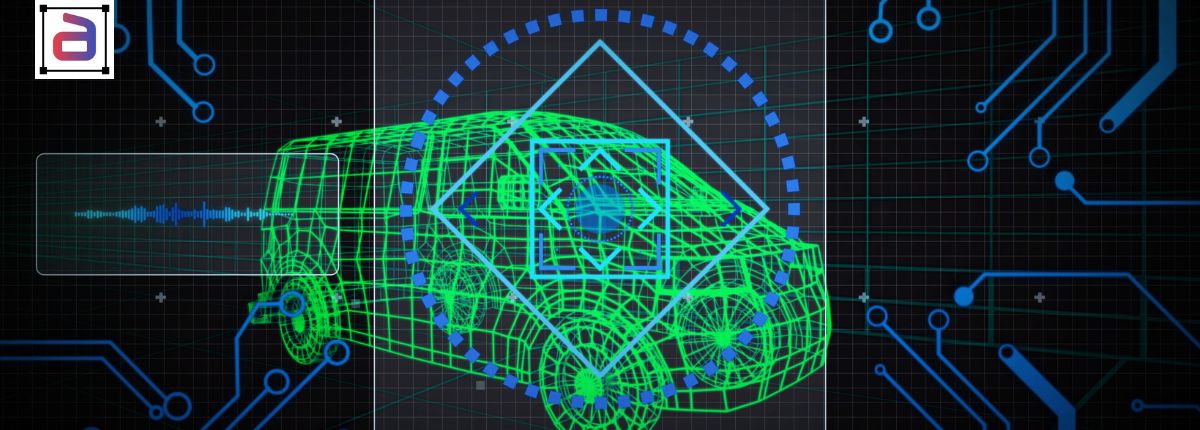Chatbots and AI-powered legal tools are no longer futuristic experiments—they are becoming core to how businesses operate. Retailers use chatbots to engage customers 24/7, banks rely on them for account support, and law firms are turning to AI for contract reviews. Yet these systems only work if they understand more than surface-level words. They need to capture context, intent, and tone to deliver value. This is where text annotation for chatbots and legal AI comes in. By going beyond keywords, annotation helps AI systems move from scripted responses to real, human-like intelligence.
Table of Contents
According to Gartner, by 2027, chatbots will be the primary customer service channel for nearly 25% of organizations worldwide. Meanwhile, Deloitte estimates that AI could save the legal industry over 100,000 hours of routine work annually. But these benefits only materialize when AI is trained on carefully annotated, context-rich datasets.
Why Text Annotation Matters for Building Chatbots and Legal AI
Text annotation is the process of labeling text with contextual tags that help AI models learn meaning rather than just words. This step is essential because natural language is often ambiguous, full of slang, abbreviations, and domain-specific terminology. By providing structure to raw text, annotation helps AI systems interpret intent and context the way a human would. Some key elements include:
- Intent Recognition: Identifying what a user really wants. For example, “I need help with my bill” could mean billing errors, payment methods, or subscription changes. Annotated intents give AI the context it needs to route conversations correctly and provide relevant answers rather than generic responses.
- Entity Extraction: Highlighting names, dates, case numbers, or financial terms so AI systems can act on precise details. In legal AI, this could mean identifying a clause referencing a jurisdiction; in chatbots, it could mean extracting an account number to resolve an issue faster.
- Sentiment Analysis: Detecting tone—whether a customer is frustrated, confused, or happy—so chatbots can adjust tone or escalate cases when needed. For example, a chatbot can switch from promotional language to empathy when it detects anger or disappointment.
- Contextual Tagging: Capturing industry-specific jargon, abbreviations, and nuances, whether it’s “force majeure” in contracts or “chargeback” in banking. Contextual tags ensure that AI doesn’t misinterpret specialized terms.
Industry data reinforces the value: a Forrester study showed that businesses using annotated conversational datasets improved chatbot resolution rates by over 25%, while law firms using annotated legal corpora reported higher compliance accuracy. Without annotation, AI is essentially guessing. With it, chatbots can resolve issues faster, and legal AI can deliver accurate, compliance-ready decisions that reduce risks and improve trust.
Building Smarter Chatbots with Text Annotation
Chatbots are moving far beyond FAQ scripts. Today’s AI-driven chatbots need to replicate natural, multi-turn conversations. Text annotation makes this possible by:
- Creating Natural Conversations: Annotated intent and sentiment data allow bots to move beyond keyword triggers and understand the flow of dialogue.
- Personalizing Responses: Annotated datasets feed AI with customer history and context, so a chatbot doesn’t just answer but also tailors its responses to the individual.
- Supporting Multiple Languages: Annotation across languages helps global retailers or banks serve customers consistently in diverse regions.
“Chatbots trained on annotated data are not just answering questions—they’re delivering experiences.” — CX Analyst
Modern chatbots and legal AI systems demand more than keyword matching. Text annotation enables contextual understanding, entity recognition, and intent mapping, allowing AI models to interpret complex language with greater accuracy and legal relevance.
Case Example: A global retailer annotated 100,000+ customer queries to train its chatbot. The result: escalations to human agents dropped by 30%, while customer satisfaction scores improved significantly, proving the ROI of annotated conversational datasets.
Legal AI and the Role of Text Annotation
Legal AI is reshaping one of the most document-heavy and compliance-driven industries. From contracts and case law to compliance filings, law firms and corporate legal teams are overwhelmed with unstructured text. Annotation provides the structure that allows AI tools to cut through this complexity, offering both speed and accuracy in areas where precision is non‑negotiable.
- Streamlining Contract Review: Annotated clauses and key terms enable AI tools to automatically flag obligations, renewal dates, indemnity clauses, and risks. This reduces the hours lawyers spend combing through lengthy agreements and lowers the likelihood of missing critical details.
- Accelerating Case Law Research: Annotated precedents, judgments, and citations enable AI systems to quickly and accurately surface relevant rulings. Instead of sifting through thousands of documents manually, lawyers can focus on building stronger arguments.
- Ensuring Regulatory Compliance: By tagging references to statutes, industry standards, or compliance triggers, annotation helps AI flag potential issues before they become liabilities. This is particularly vital in heavily regulated industries like finance and healthcare, where non‑compliance can result in fines of millions of dollars.
Industry analysts note that legal departments spend nearly 60% of their time on repetitive, low‑value tasks such as document review. With well‑annotated datasets, AI can take on much of this workload. In one pilot project, a legal AI system trained on annotated documents processed contract reviews 40% faster than human teams and identified 15% more risk clauses. For law firms and in‑house counsel, this translates to higher efficiency, fewer overlooked liabilities, and the ability to allocate more time to high‑value strategic work.
“Text annotation is not just a technical necessity in legal AI—it is the backbone of trustworthy automation in an industry where accuracy is everything.” — Legal Technology Analyst
Challenges in Text Annotation for Chatbots and Legal AI
Even with its benefits, text annotation comes with challenges that businesses must address to make AI trustworthy and effective:
- Ambiguity of Language: Words and phrases often have multiple meanings depending on context. For instance, the word “charge” could mean a legal accusation, a payment, or the act of powering a device. Without detailed guidelines, annotators risk inconsistent labeling. This ambiguity is particularly challenging for chatbots that rely on precise intent recognition.
- Need for Domain Expertise: Annotators must have subject-matter understanding to capture meaning correctly. A generalist annotator might miss nuances in legal contracts, such as “force majeure” clauses, or misunderstand banking terms, such as “overdraft protection.” Domain expertise ensures accuracy and prevents costly errors.
- Bias Risks: Datasets that overrepresent certain demographics, regions, or scenarios can lead to biased AI outputs. For example, a chatbot trained primarily on queries from English-speaking users may struggle with non-native phrasing, while legal AI trained only on one jurisdiction’s cases may misinterpret others. Bias-aware workflows are critical to avoid unfair or inaccurate results.
- Scale of Work: Annotating millions of chat logs, case files, or contracts is resource-intensive. Without scalable teams and quality checks, projects can suffer delays and inconsistencies. This is why many organizations turn to BPO providers to manage annotation at scale with robust QA frameworks.
- Evolving Language and Regulations: Customer service language and legal frameworks change constantly. Annotation guidelines must be updated to reflect new slang, emerging legal terminology, and updated compliance standards.
Industry experts emphasize that annotation mistakes can cascade quickly in AI systems. As one Legal Tech Expert observed: “AI trained on poor annotations will scale errors, not solutions.”
The Role of BPO in Text Annotation
For most organizations, managing annotations in-house is impractical. It requires hiring large teams, training them in specialized domains, building annotation platforms, and maintaining quality controls. These investments can become overwhelming, especially when AI projects require tens of thousands—or even millions—of annotations. This is where outsourcing comes in. BPO partners provide the scale, expertise, and compliance frameworks needed to manage annotation efficiently and reliably.
- Scalable Teams: BPO providers maintain large, distributed teams trained to handle thousands of conversations or legal documents quickly. This scalability is essential for industries such as customer service and law, where data volumes grow daily.
- Specialized Expertise: Many BPO annotators have backgrounds in law, compliance, or customer service, ensuring they understand nuances such as legal clauses, customer sentiment, or regulatory language. This expertise minimizes errors and boosts accuracy.
- Quality Assurance: Leading providers implement multi-layer QA frameworks with gold standard datasets, peer reviews, and human-in-the-loop corrections. These processes ensure annotations are consistent, bias-free, and aligned with project goals.
- Compliance Alignment: With regulations like GDPR, HIPAA, and SOC 2, compliance is non-negotiable. BPO partners embed strict data handling protocols, anonymization techniques, and access controls to protect sensitive legal and customer data.
- Faster Time-to-Value: By outsourcing annotation, organizations reduce setup time and can launch AI pilots or full deployments more quickly, turning data into business outcomes faster.
According to Everest Group, global demand for outsourced annotation is projected to grow by over 20% annually as industries race to adopt AI at scale. This trend shows that outsourcing is no longer a tactical cost-saving move—it is a strategic choice for companies that want AI projects to succeed at speed and scale.
Annotera’s Expertise in Text Annotation
At Annotera, we specialize in text annotation for chatbots and legal AI. Our services are designed to combine accuracy, scale, and compliance:
- Conversational AI Support: Annotating intents, entities, and sentiments for smarter, more empathetic chatbots.
- Legal AI Solutions: Labeling clauses, precedents, and compliance triggers to power contract review and case research.
- Bias-Aware Workflows: Ensuring datasets reflect diversity and fairness.
- Human-in-the-Loop QA: Refining datasets continuously to minimize errors and maximize model reliability.
- Scalable Global Teams: With domain expertise in law, customer service, finance, and more.
By partnering with Annotera, organizations get more than annotation—they get a trusted framework that ensures their AI systems are context-rich, accurate, and compliant.
Executive Takeaway
Going beyond keywords is what makes AI truly intelligent. With high-quality text annotation, chatbots evolve into personalized digital assistants, and legal AI becomes a trusted compliance partner. Companies investing in annotation today are not just reducing costs—they are building trust, efficiency, and long-term competitive advantage.
Choose Annotera for Text Annotation
Text annotation is the hidden force behind smarter, safer, and more human AI systems. From conversational bots to compliance-heavy legal tools, annotation ensures AI delivers accuracy, trust, and measurable business value.
Ready to power your chatbots and legal AI with better data? Connect with Annotera today and explore how our text annotation services deliver smarter outcomes.


